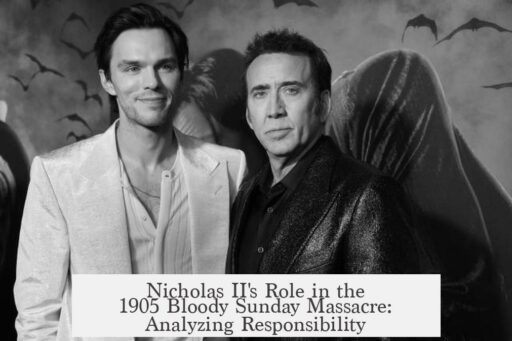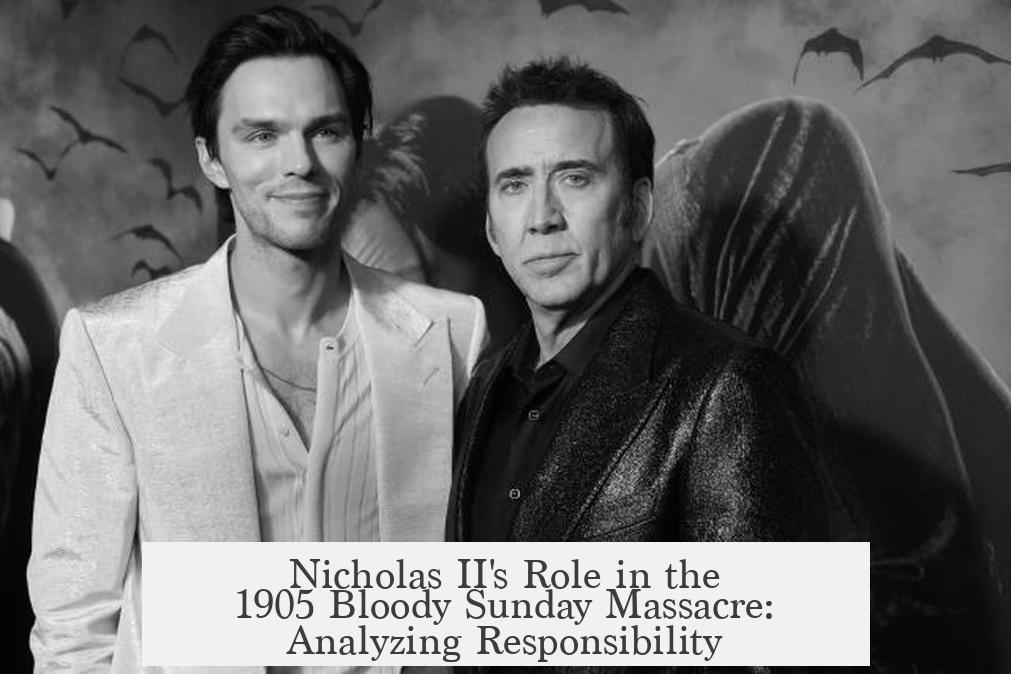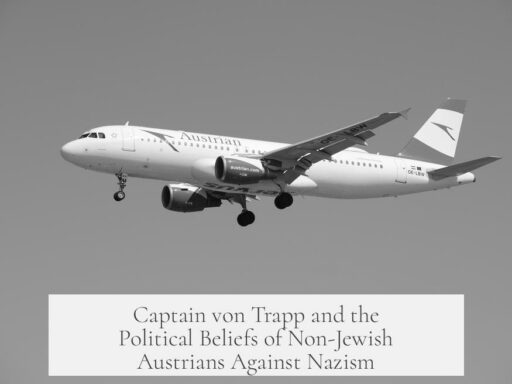Nicholas II does hold responsibility for the 1905 Bloody Sunday massacre, but not for directly ordering the violence. His delayed awareness and disengagement contributed significantly to the tragic outcome.
Nicholas was not in St. Petersburg during the event; he stayed at Tsarskoe Selo, about 15 miles away. This distance kept him less informed. A letter from Father Gapon, requesting an audience, arrived at the Winter Palace two days after Nicholas had left. It is unclear if Nicholas ever read it. More crucially, he was not informed of the growing unrest or the protest’s progression until late Sunday evening, well after the violence had erupted.
The cabinet held a meeting on the day of the protest, which Nicholas skipped. Ministerial officials decided to deploy soldiers around the city center, aiming to intimidate protestors without expecting violence. Reports from attendees describe a calm atmosphere, with confidence that soldiers alone would control the crowd.
After this meeting, Nicholas received a report from Svyatopolk-Mirsky. The tone remained unconcerned, lacking alarm about the deteriorating situation. Critically, there is no evidence Nicholas gave an order to fire on protestors.
Nevertheless, Nicholas’s approach to governance explains his indirect responsibility. He despised ruling duties but refused to delegate power, believing he ruled by divine right alone. This attitude led to poor communication and a lack of awareness about critical developments.
If he had been more engaged, he might have recognized the danger and intervened earlier to prevent military action against unarmed demonstrators. His willful ignorance and refusal to share his authority allowed tensions to escalate unchecked.
Long-term, Nicholas’s failure to reform autocracy or embrace constitutional monarchy fueled public unrest. If he had adapted Russia’s political system before 1905, Bloody Sunday might not have occurred. His insistence on absolute power indirectly caused the tragedy through neglect rather than direct command.
- Nicholas was not physically present or promptly informed during Bloody Sunday.
- He did not order soldiers to shoot protestors.
- His indifference to ruling and poor communication delayed response to the crisis.
- Long-term autocratic rigidity under his reign contributed to the unrest.
- Greater involvement or reform could have averted the massacre.
Did Nicholas II Have Any Responsibility for the 1905 Bloody Sunday Massacre?

When it comes to the events of Bloody Sunday in 1905, Nicholas II did not directly order the massacre. That’s the short answer. But as with most things in history, the truth dives much deeper than a simple “yes” or “no.” The question of Nicholas II’s responsibility requires us to peel back layers of context, choices, and missed signals.
So, what was Nicholas II doing on that fateful day? Surprisingly, not at the center of the storm but about 15 miles away at Tsarskoe Selo. This distance wasn’t just physical—it meant Nicholas was kind of out of the loop about what was really bubbling in St. Petersburg.
Here’s a twist: Father Gapon’s letter, which outlined the protestors’ peaceful demands, arrived at the Winter Palace two days before the march. But Nicholas had already left; whether he ever read it remains a mystery. By the time the soldiers fired on the crowd, he didn’t even know it was happening. Reports say he only learned of the tragedy Sunday evening — far too late to stop the massacre.
Who Called the Shots That Day?

It wasn’t Nicholas who waved the gunmen on. Instead, that evening a cabinet meeting convened at the Winter Palace, without His Majesty in attendance. The ministers debated strategies to handle the growing unrest but concluded that stationing soldiers around the city center to “scare off” the protestors would suffice.
The scene in that room? Calm, almost too calm. The minutes reflect a group confident that a few uniforms would be enough deterrent. Apparently, they thought crowd control was a simple “show ‘em who’s boss” deal. Ironically, this underestimation sealed the day’s tragic outcome.
Following the meeting, Svyatopolk-Mirsky traveled to Tsarskoe Selo to brief Nicholas. Calm reassurances, no alarm bells. Despite the escalating tension, the mood among those orchestrating decisions was surprisingly relaxed.
So, Was Nicholas II Responsible?

Technically, no. He did not give any direct orders to fire upon the crowd. Nor could he have realistically stopped it once the mob had formed by Sunday morning. So on that narrow timeline, he’s pretty blameless.
But then we zoom out for the larger picture. Nicholas II hated ruling. Really, hated it. Imagine being handed the biggest job in the world, but then spending your days wishing you were anywhere else. This dislike translated into disengagement. He viewed the monarchy as a sacred responsibility, handed down by divine right, which made delegating power to ministers nearly impossible for him.
He avoided meetings, shrank from reports, and chose ignorance over involvement. This style of leadership made him a classic “absent emperor.”
Could this have been prevented? Absolutely. Had Nicholas II taken a more active role—taking steps to remain informed, understanding the mounting unrest—he might have seen the protestors as a real threat, not just a mob to scare off with soldiers. If he had stopped ignoring the ticking time bomb, orders to fire could have been avoided.
But The Crash Didn’t Happen in a Vacuum

Bloody Sunday didn’t appear out of nowhere. It was the result of years of rising dissatisfaction, growing calls for reform, and the regime’s refusal to adapt. Nicholas II had opportunities to evolve the autocracy. Instead, he clung fiercely to his power, unwilling to become a constitutional monarch or share sovereignty.
The massacre’s ultimate guilt is shared. It’s not only about a single day but the entire reign of Nicholas II. His failure to foresee the warning signs, his disdain for ruling, and stubbornness shaped the conditions that made Bloody Sunday inevitable.
A Tale with Lessons

So what can we learn here? Leadership isn’t just about showing up. It’s about paying attention, staying engaged, and sometimes swallowing pride to adapt. Nicholas II’s story is a cautionary tale about the dangers of disengaged power.
Imagine if the Tsar had heeded warnings, read Father Gapon’s letter in time, or even just asked for a detailed daily briefing on the city’s mood. The massacre might never have happened.
In the grand scheme, Nicholas II’s hands weren’t directly on the trigger, but his neglect and detachment created the conditions for the tragedy. Some might say he’s as responsible for the death and destruction as the bullets themselves.
What’s Your Take?
Was Nicholas a doomed ruler overwhelmed by a tide he couldn’t control? Or was he willfully blind, tipping history toward disaster by refusing to delegate, listen, or change? History rarely offers absolute answers, but this question invites reflection on leadership’s real meaning—and its powerful consequences.
In conclusion: Nicholas II does bear responsibility for Bloody Sunday, though not as the man who gave the shooting orders. His absence, disengagement, and stubborn hold on power set the stage for disaster.
Would things have been different had he embraced reform, sought advice, or passed the baton? History’s door remains open, but we can still learn from what happened when a leader lost touch with reality—and his people.
Did Nicholas II know about the 1905 Bloody Sunday protest while it was happening?
No, Nicholas II was about 15 miles away in Tsarskoe Selo. He was not informed until the Sunday evening, after the shooting began. By then, it was too late for him to take action.
Did Nicholas II order the troops to fire on the protesters?
No, he did not directly order the soldiers to shoot. The decision and actions were made without his direct command. He was not involved in the immediate decisions that led to the violence.
Could Nicholas II have prevented the massacre if he had been more involved?
Yes, if Nicholas had been more engaged in ruling and demanded timely updates, he might have known about the march earlier. This could have allowed him to intervene before violence occurred.
Why did Nicholas II fail to prevent the Bloody Sunday massacre?
He disliked ruling and avoided meetings. He trusted his ministers to filter information and did not ask for enough details. This lack of involvement meant he missed warning signs before the massacre.
Is Nicholas II responsible for Bloody Sunday in a broader sense?
Yes, in the years leading to 1905, his refusal to share power and adapt Russia’s government contributed to unrest. Had he become a constitutional monarch earlier, the tragedy might have been avoided.




